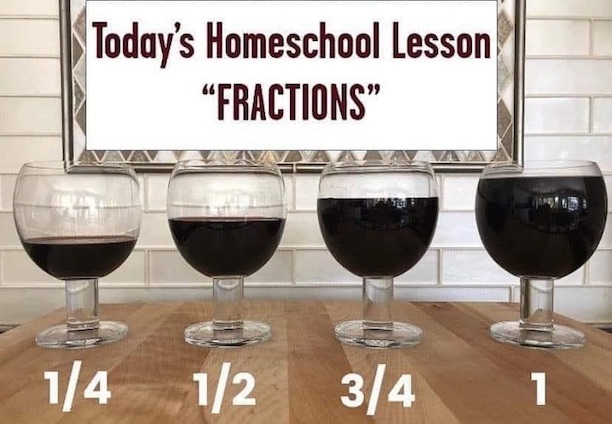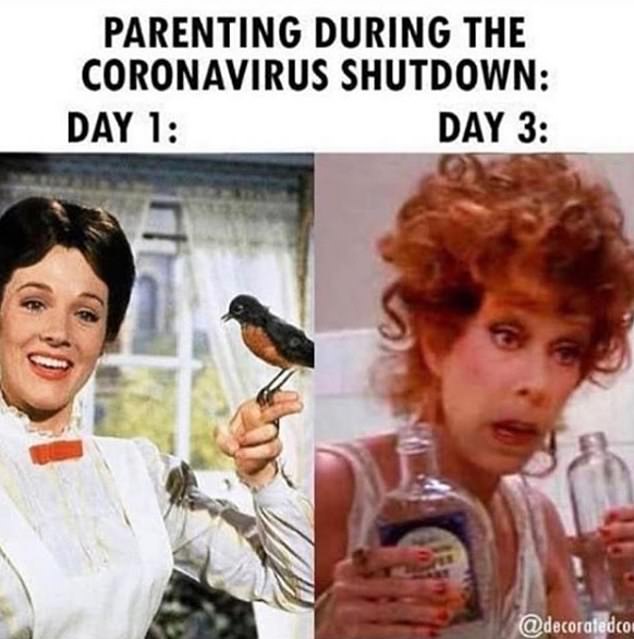Whether you’re in recovery (like myself) or wondering (especially of late) if you might be crossing over that invisible line into having an alcohol use disorder (AUD), here are 12 tips that have helped me to stay sober during a pandemic.
When the pandemic hit, and we were ordered to shelter in place, it struck me as somewhat comical at first that liquor stores were deemed essential businesses. Then I remembered (and later read) that’s to keep those who are heavy daily drinkers from going into seizure if they were to stop suddenly. Liquor sales are booming, with an increase of 55% in just the first week of March alone, when sheltering in place began.

Suddenly having to spend all day at home with just your immediate family, while juggling a job (or lack of one), and monitor your kids’ online learning for eight plus weeks is stressful. Fears about finances and health can feel overwhelming. An everyday task like getting groceries is now an exhausting scavenger hunt, subjecting yourself to people not practicing social distancing or wearing a mask can put your life on the line. Then there’s the tedious task of sanitizing every grocery item once home, while vigilantly making sure you don’t accidentally touch your face in the whole process. No wonder mama wants a Quarantini!

My Story (a very abridged edition)
If I don’t pick up a drink before May 30th (hey, I still have to get my son through finals week) I’ll celebrate 29 years of continuous sobriety. I was fortunate to get sober in my twenties, in early stages of alcoholism. The disease varies from person to person, but what it looked like for me was periodic over-indulgence. I could go three months without drinking and sometimes just have one or two cocktails and stop. Other times, once I took a sip, I couldn’t predict when I would stop. I was high functioning, with a college degree from the number one school in my field, landing great jobs in a competitive industry. However, drunken shenanigans that was easy to laugh off in college, as a young professional, had become embarrassing, mortifying in fact, and sometimes dangerous. I lucked into a therapist’s office who happened to be well-versed in addiction. She underscored that my continuing to drink, despite having negative consequences, was alcoholic. My efforts to quit for months only to convince myself I didn’t have a problem, then drink again, was classic controlled drinking, characteristic of an alcoholic. I went to rehab at Hazelden, in Center City, MN for a 30-day, in-treatment program and have remained active in Alcoholics Anonymous ever since.
If you’ve wondered if you might have crossed that line, a good way to find out is to attend a meeting of Alcoholics Anonymous (by Zoom for now) to see if you identify. Usually anyone who wants to cut back on their drinking and can’t, or goes back to drinking once they convince themselves they can quit for a bit (like me), probably has a drinking problem. Here are some tips that have helped me stay sober during the pandemic.
1. Don’t pick up the first drink. It’s not the third or fourth drink that gets you drunk, it’s the first sip. All bets are off after that if I’ll be able to stop. (Working through a first step when I was at Hazelden helped me grasp that.) My obsession to drink was lifted long ago, but I continue to work the twelve steps of AA because my emotional sobriety gets wonky. Simply “not drinking,” without inoculating yourself with a program of recovery, results in a “dry drunk.”
2. Identifying emotional sobriety. Fear, in its infinite forms, is what drives most of us to want to numb our feelings with alcohol or other unhealthy behavior. Addictive acting out could be emotional eating (my Corona figure is going to create its own social distancing in a bathing suit), Netflix binge watching (the entire Tiger King series in one sitting perhaps), impulse shopping (not every Amazon Prime purchase I’ve made has been essential), or any compulsive behavior that results in remorse. Off-kilter emotional sobriety could also be seething resentment over say, politics (flipping off and yelling at the TV for the president suggesting injecting disinfectant might cure the virus.) There are infinite ways to end up emotionally rattled if you aren’t immersed in a program of recovery. And once you’ve worked the twelve steps with an AA sponsor, a daily tenth step can help keep your emotions in check.
3. Turn it over. Even if you’re not religious, you can work a spiritual program of recovery by being open to the concept of a higher power. That’s why AA has worked around the world for people of all faiths, agnostics, and even atheists. While I grew up in a Protestant church, I was fairly agnostic when I first got sober, but I’ve found a willingness to believe in something greater than me to keep me sober, has worked. Over time of working step eleven, by continuing to seek a connection, has strengthened by relationship with God. In daily practice, I’ll pick up a book (from AA literature or one of my meditation books, or an app). I have a knee-jerk reaction to pray (in my head, “God please keep me sober today.”) when an opportunity to drink is offered, even if it doesn’t look enticing.
4. Limit social media and news. It’s important to stay informed during a pandemic, but don’t turn the news on TV in the morning and leave it on all day. Set limits on social media too. Sharing an informative news article on Facebook to be helpful is one thing, but getting sucked into a lengthy argument with a stranger is a waste of time. (Restraint of zinging snarky comments, particularly when people aren’t following safe COVID-19 protocol, is not one of my strengths.)
5. Self-care. Make a list of things that feel nurturing to you and pick one of them when you feel like drinking or emotionally spent. For me, I’ll: make cup of tea and take a bubble bath, tend my flower or vegetable garden (digging in the dirt really does make you happier!), going on a walk, take a swim (now that pools are opening up), take an online yoga class or make a healthy smoothie.
6. Practice gratitude. When fear, self-pity, depression or angst creep up, gratitude helps. I used to do this even pre-pandemic as part of a bedtime routine with my son when he was younger, after we’d read books and turned the light off. We’d take turns listing what we were grateful for that day. When I get an email that a job I applied for went to someone internally, I can easily slide into self-pity or financial angst. Writing a gratitude list of what I have right now and what’s going right today helps.
7. Connect with sober pals (while social distancing). COVID-19 in Austin, still hasn’t peaked, so it’s important to still maintain social distancing and wear a mask when around others. Call your AA sponsor for frequent check-ins, and reach out to another alcoholic. In early sobriety, my sponsor had me call two other alcoholic women a day who had less time sober than me to ask them how they were doing. As awkward as that felt to pick up the phone, I felt better when I hung up after lending an ear to someone else. A pillar of AA is one alcoholic working with another (even if that’s over the phone or FaceTime.)
8. H.A.L.T. If you’re Hungry, Angry, Lonely or Tired, it can set off a craving to drink or knock you off your feeling emotionally sober. Now, more than ever, it’s important to eat regularly healthy meals, get plenty of sleep (and a nap if needed), stay connected with sober friends who really get you, and don’t stew in feelings of anger or resentment.
9. Service to others. Besides working with another alcoholic as a sponsor, you can boost your morale by helping in your community. Even though my finances are strained now, we Marie Kondo-ed our drawers and closets to donate to an Austin women’s shelter. (Domestic violence is on the rise and women’s shelters are in need more than ever.) Here are some other places around town in need. Blood banks also need help if you can give there. Any small act of kindness in your daily life to others will bolster your spirits. Someone in my neighborhood started a painted rocks Facebook group. It’s an arts and crafts activity to do with my son where we paint inspirational messages on rocks, then place them on our neighborhood trails for others to find.
10. Stay in the now. It’s easy to start “awfulizing” about the future, spiraling off into the what-ifs in infinite ways. I find if I do what I can to prepare (take action) for the future and focus on what I have control over today, each day is more manageable. Learning how to practice Mindful Meditation brings all sorts of benefits besides just staying sober. And there are other ways to stay present.
11. Attend a Zoom AA meeting. There are AA meetings in Austin, every day by Zoom. Now is a great time to check out a new meeting without having to navigate across town in traffic. My regular Saturday Women’s meeting breaks out into chatrooms afterwards for fellowship. Pre-quarantine, a group of us would hike before the meeting, then go to lunch afterwards which I miss. But now, we gather in groups of 4 in breakout “rooms” online to catch up or get to know others better. It’s been fun to do “show n’ tell” of say, what we’re growing in our gardens.
12. Seek Treatment. If you your drinking (or drugging) has gotten out of hand and you think you may benefit from treatment, I can’t say enough good things about Hazelden. When I was ready to get sober, I wanted to jump in with both feet and learn all I could about my disease. My therapist said Hazelden was like the Harvard of rehabs, has one of the highest success rates, and they publish much of the literature in the recovery field (which also makes rehab there one of the more affordable options.)
So, there’s my experience, strength, and hope of tips to help keep you sober through all of the Corona-craziness. Feel free to comment on what’s kept you from hitting the bottle and how you’re finding ways to have fun sans alcohol.
Photo Credit :: Lauren Samuels Photography










